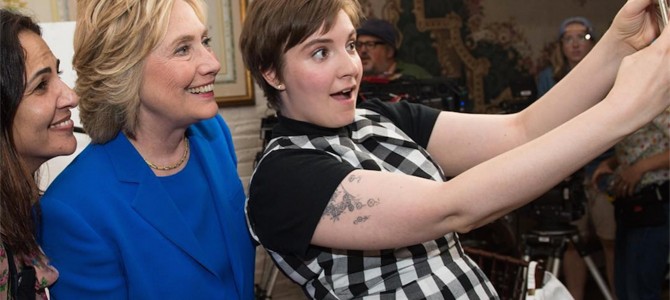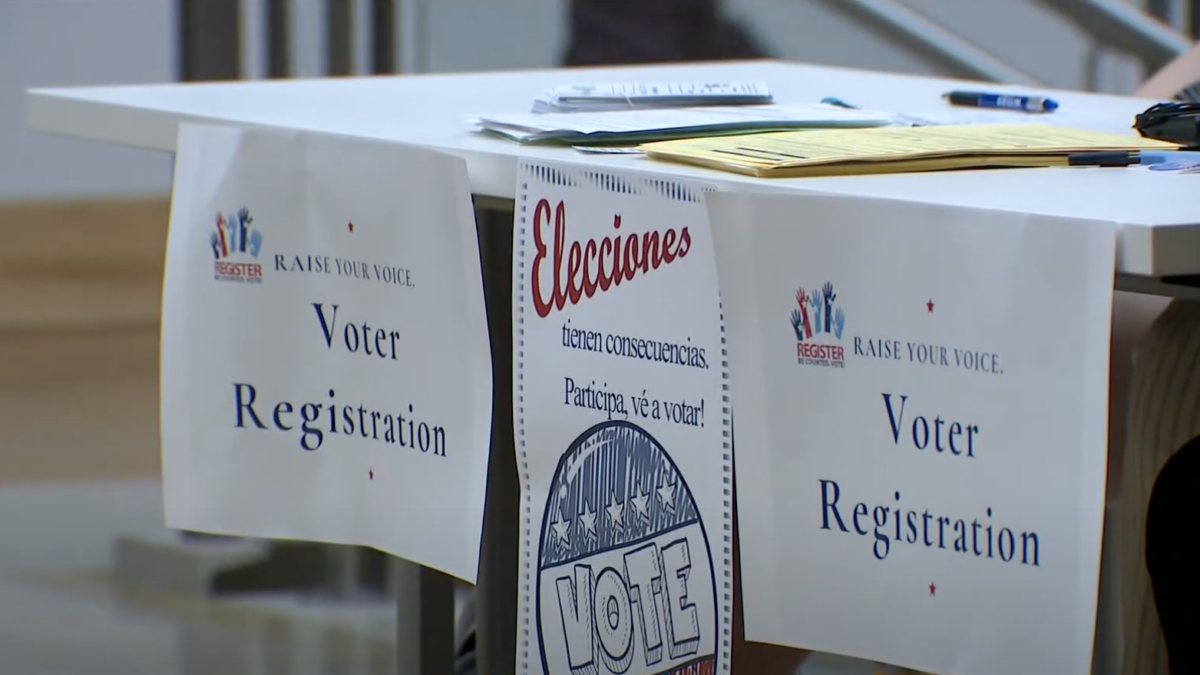
Lena Dunham is going to campaign for Hillary Clinton. To them, it seems a mutually beneficial arrangement. They both trade in being a woman. Clinton is losing the support of women, and Dunham needs press for her career.
They’ve been partnering for months, actually. Dunham debuted her Lenny Letter email list with a Clinton interview. It was campaign clickbait which included the de rigueur question about feminism—Are you a feminist?—and talk about dresses.
Considering feminism’s lack of popularity and the typical view of asking powerful women about their clothes (it is trivializing and sexist) one has to wonder: why would Clinton want to campaign with Dunham?
It’s a category error. Clinton’s campaign and elite feminists—that is, white, affluent, advanced-degree professional women—think Dunham is the empowered millennial woman. They think millennial women relate to her and that she can speak to them, a belief that only underscores how out-of-touch elite feminists are with the everyday woman. Dunham is no role model for the young, and she appalls older women—when they figure out who she is.
Who Is Lena Dunham?
If you don’t get your news online or spend much time on social media, a description that fits a large portion of Gen X and older women, then you might have only heard of Dunham in passing and figured she was just another young female starlet that busy women don’t have time to read about.
She is an author in her twenties who wrote an HBO series, “Girls.” It’s not strictly autobiographical, but she plays the main character, Hannah, who is based off Dunham.
“Girls” is famous-but-not. The show never had blockbuster ratings and the ratings it had have markedly declined, with the last season closing under 800,000 viewers. (For comparison, “Game of Thrones” closed last season with 8.11 million viewers.) But Dunham’s “Girls” seems insightful to certain feminists.
In the world wrought by Helen Gurley Brown, the literary mentor for women with such low regard for their talents that they assume they must sleep their way to the top, and Gloria Steinem, of fishes and bicycles fame, Hannah and her friends are excellent feminists. They are free to have sex like men while pursuing their fulfilling careers without needing any male interaction beyond the not-so-occasional sexual congress.
Except Hannah and her friends are treated more like cum dumpsters (a vividly accurate description coined by Tom Wolf in his hookup culture novel, “I Am Charlotte Simmons”), and they want but cannot seem to secure male companionship beyond the not-so-occasional sexual congress. Furthermore, the fulfilling careers are not easy for these millennial women to find or don’t allow them to take home enough to cover school debt. That’s how the show hooked this audience, in fact. It opened with Hannah whining to her parents that she needed more funds to cover her post-university, no-income writer lifestyle.
From an early review in Time by the creator of “That Girl,” the Marlo Thomas show from the 1970s: “Girls is not the only female situation comedy with a self-respect problem, although it’s probably the most intelligent. Two Broke Girls, New Girl, The Mindy Project, Don’t Trust the B in Apartment 23 — all of these shows portray characters who, week after week, take the uninspiring path of casual, empty sex and small aspirations.”
‘Girls’ Is Realistic, to a Fault
Yet elite feminists love the show for its realism. They keep writing about it, and since they are very social-media savvy, they keep the show on HBO and Lena employed as a feminist darling.
Dunham became the spokeswoman for Planned Parenthood.She did a “voting is like having sex for the first time” promo for President Obama during his re-election campaign. She wrote a memoir that became infamous for two things: one, a false rape accusation against a Republican man she knew in college and two, her glib accounts of practicing sexual touching on her baby sister.
She started a column at Elle. One of the first entries encouraged young women to #askyourmother if she had ever aborted one of your siblings. That column seems to have been early PR for her newsletter, the first of which is the successfully disastrous Hillary Clinton interview. By the second letter she was asking subscribers if it was too soon to start calling us “Lennys”. (Yes. It is perpetually too soon to give your readers a cutesy nickname.) For all of this, she’s a popular gal in elite feminist circles.
In conservative circles, however, she’s the “we told you so” gal. If “Girls” is realistic and relevant, then everything the Phyllis Schaflies warned us about second-wave feminism was true. We should be flocking to Phyllis and the other Cassandras of the ’70s and ’80s to figure a way out of this shockingly awful mess for our daughters.
Dunham gets enough press from those two factions to be notorious. She comes by even more criticism and press from non-elite feminists. These are the feminists who are sick of seeing the feminist movement dominated by rich, usually white, C-suite women. They are not impressed with Dunham, who landed a multi-million-dollar advance for a memoir from a 23-year-old and who publicly pressured her boyfriend for a marriage proposal after the Supreme Court enshrined gay marriage. To them she is just another rich, white girl unaware of her own privileges, like everyone who dominates the feminist movement.
Hillary Clinton Wants to Do Identity Politics
So why is Hillary Clinton partnering with her? Despite all of this, the famously closed Clinton campaign granted an interview to Dunham. In one way, it made sense. Dunham is a devotee and easy to control. She could be counted upon not to ask any surprise or difficult questions. That interview went as planned and certainly got some publicity, so they are continuing the partnership in an Iowa campaign appearance.
Months ago, polls started to show Hillary losing support among women. She needs to shore up her female support. But I am shocked that her campaign thinks they can do this with Dunham. Read their initial interview with even a hint of critical reasoning skills and it is all pathetic identity-politics pandering. Young women like to talk about dresses, right?
Every other time I’ve seen reports on female politicians’ fashion sense (and often it is a chief officer of state, although that may be because Theresa May and Condi Rice both look great in knee-high boots) many commentators will complain it is sexist and trivializing. But for Hillary it is supposed to be humanizing? And Dunham is so respected that she gets a pass for this line of questioning?
Second, millennial women following the 2016 race that early in the cycle wanted fashion talk? Didn’t feminism teach us that this fashion and politics stuff was pandering to low expectations of female intellects? Yet Dunham instantly reaches for the clothes talk.
For the non-elite feminists with whom Clinton has a shot if she starts speaking “intersectional” feminism, her association with Dunham will help no more than her Larry Flynt endorsement. (He endorsed her for the judges.) Representing those feminists, Lizzie Crocker at the Daily Beast called the Dunham interview “political pandering at its most transparent.”
Casual observers have no idea who Dunham is, and they are often put off when they find out. That has certainly been my experience in introducing non-news junkie friends Left, Right, and middle to Dunham. They do not see a role model of any sort for their sisters, daughters, or nieces.
The Clinton camp seems to be hypnotized by self-referential churn—the appearance of popularity due to Dunham’s social-media savvy. That’s why HBO has fed us more than two seasons of “Girls.” Surely similar tactics will work for the election. Because women are gullible, right?
Oh, and since I missed it, Katy Perry stumped for Clinton recently, too. She sang and they both referred to the song “Roar.” The lyrical middle finger to an ex-husband that includes the line “I stood for nothing so I fell for everything”—that’s the one. The Clinton campaign’s tin ear for their candidate’s women problem is not limited to fawning over Lena Dunham.









